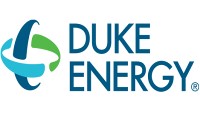Duke Energy Renewables Wind, LLC, a nonregulated subsidiary of Duke Energy (NYSE: DUK), has been named a provisional winner of OCS-A 0546 lease area in the Carolina Long Bay offshore wind auction.
The lease was one of two awarded as part of an Atlantic Outer Continental Shelf renewable energy auction held by the Bureau of Ocean Energy Management (BOEM).
“Securing this lease creates optionality for future offshore wind if the North Carolina Utilities Commission determines it’s part of the least cost path to achieve 70% carbon reduction by 2030 and net-zero by 2050,” said Stephen De May, Duke Energy’s North Carolina president. “As we continue to assess the area and project potential, we look forward to listening and learning from diverse stakeholders and community members in the region to ensure we are being thoughtful about all aspects of the potential project.”
The company will file its proposed carbon plan with the North Carolina Utilities Commission on May 16, which includes multiple scenarios for the Commission to consider as it finalizes its carbon plan by the end of 2022. Wind energy is one of a number of carbon-free technologies Duke Energy is evaluating to reduce carbon emissions on its system.
Lease area OCS-A 0546, which is east of Wilmington, could support up to 1.6 gigawatts of potential offshore wind energy, enough to power nearly 375,000 homes.?
Subject to regulatory approval, the company could begin site assessment and characterization activities in the OCS-A 0546 lease area in 2023, which would keep the company on target for a potential in-service project in the 2030-2032 time frame.
Over the next year, the team will develop a Site Assessment Plan for BOEM’s approval, which outlines a detailed proposal for studying the project area to better understand the wind energy resource and potential impacts. This is just the first of many stages in the approximately 10-year development process. Ultimately, construction could begin once BOEM approves a Construction and Operations Plan and all appropriate federal and state regulatory approvals are obtained.
Duke Energy
-
Jennifer Garber
- May 13, 2022
- (800) 559-3853


